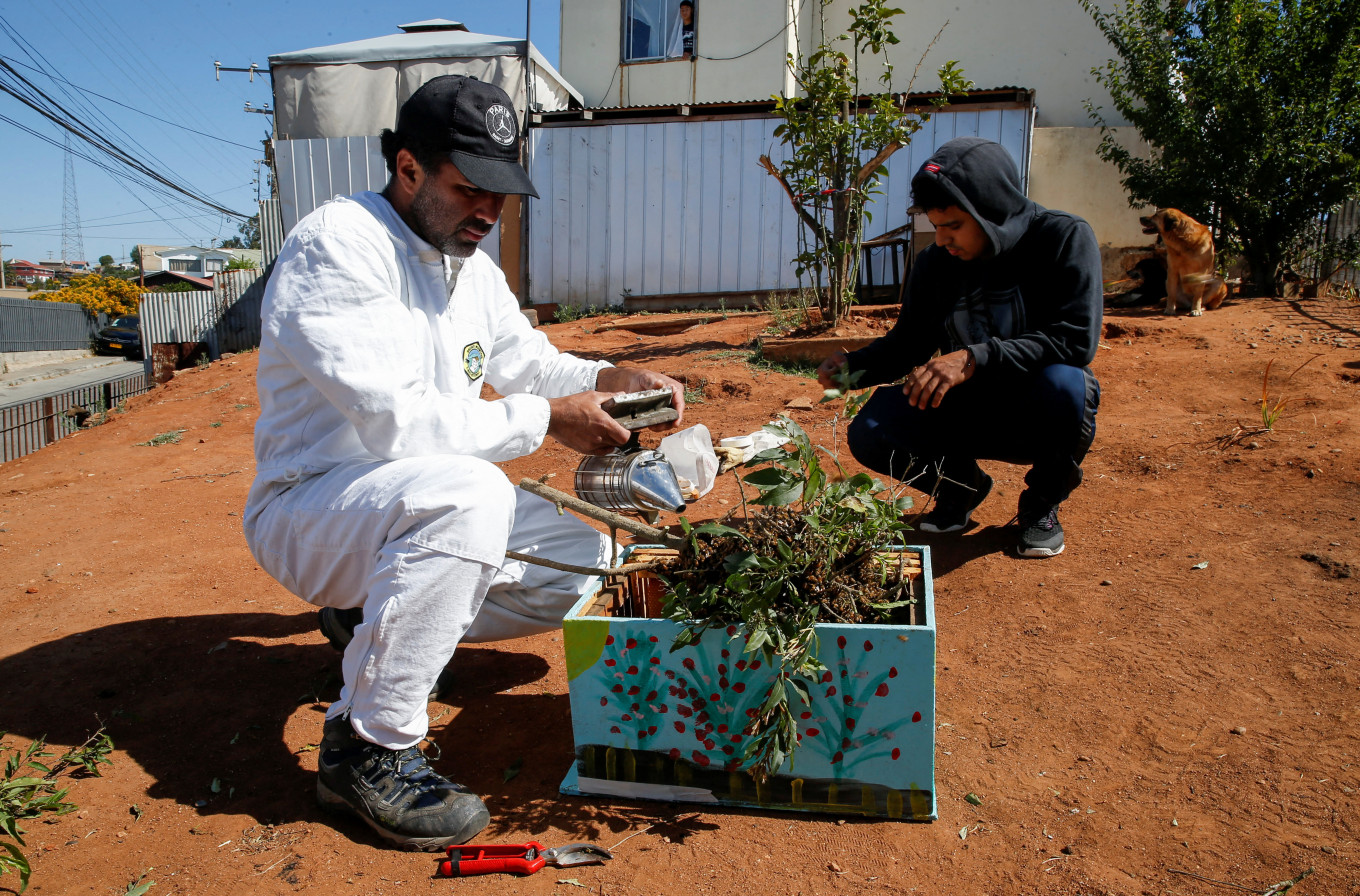Popular Reads
Top Results
Can't find what you're looking for?
View all search resultsPopular Reads
Top Results
Can't find what you're looking for?
View all search resultsIn Chile, amateur beekeeper rescues hives from coastal tourist city
Chilean scientists have warned of declining bee populations, threatened by agricultural pesticides and the impacts of climate change.
Change text size
Gift Premium Articles
to Anyone
A goldsmith by trade, Angel Nieto carefully pries away a beehive from an inner-city tree in Chile's coastal Vina del Mar. Without a protective mask, he gently places the hive in a painted wooden box and carries it to a protected space he prepared in his garden earlier.
Nieto decided this year to learn how to remove and transplant the beehives and honeycombs that appeared in the city as colonies reproduced over the Southern Hemisphere spring, in an attempt to help protect the key pollinating insect from residents who would likely destroy the hives.
Chilean scientists have warned of declining bee populations, threatened by agricultural pesticides and the impacts of climate change. Across the Americas, extreme weather has devastated colonies, threatening harvests and pushing up food costs.
In Chile, an extended drought that begun in 2010 has withered flowers and crops, wiping out food sources for the bees which pollinate many of the South American nation's main export crops, including avocados, blueberries, apples and almonds.
"It's about protecting them, taking care of them and the environment," said Nieto, who began volunteering to rescue beehives following a call from local firefighters.
He said he collects the honey from the rescued colony for his family and also as a gift for neighbors and friends.
"In this space we prepare for them, they can be free, live peacefully, without any aggressive interventions," he added. "Here they are not harmed."











